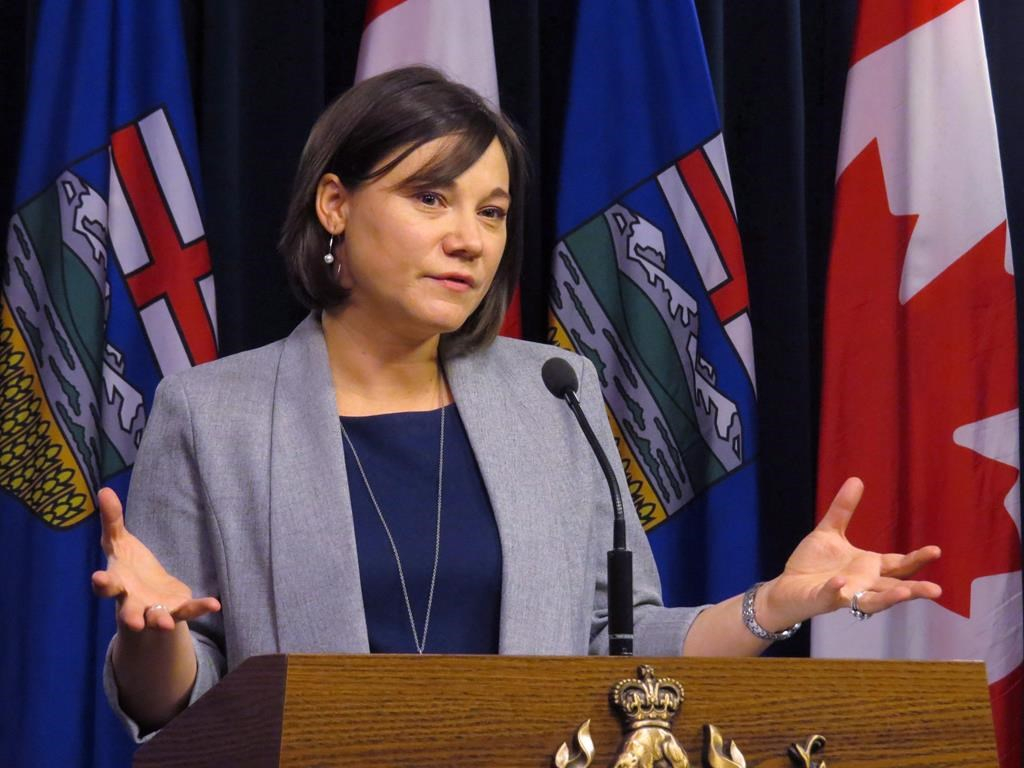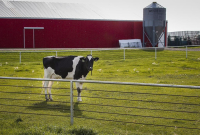Support strong Canadian climate journalism for 2025
Alberta's environment minister says she's not responsible for a controversial tweet advising people to eat less meat.
Shannon Phillips tweeted on Friday that the message, which was posted on her Twitter account on Jan. 2, came from a staff person during a period when Phillips says she was away from her Twitter account.
Phillips says the tweet was regrettable and that she has been assured it won't happen again.
The tweet began by suggesting anyone who needs a New Year's resolution should consider taking the Green Challenge by Environment Lethbridge, which is an organization based in Phillips' constituency.
The tweet says the challenge advises people to "reuse shopping bags, take shorter showers, unplug electronics devices, eliminate vehicle idling and eat less meat."
Opposition Leader Jason Kenney tweeted in response that people are free to eat what they want, and it should stay that way.
"As someone who supports Alberta's farmers and ranchers — and enjoys a good steak from time to time — I will not be taking the NDP's advice," said Kenney, of the United Conservative Party, on Twitter.
While Alberta's oil industry has typically commanded many headlines in recent years, the beef industry is still a massive economic driver in the province.
The Green Challenge by Environment Lethbridge runs between Jan. 15 and Feb. 15 and encourages people to reduce their climate footprint by focusing on five areas. It asks for people to go meatless for one day each week.
Its website says meat production and consumption is one of the leading generators of greenhouse gases.
The explanation from Phillips about the tweet followed a series of other tweets on Friday where she noted her support for the meat sector. She said she comes from a family of beef producers, adding that her grandfather came to Canada in 1919 and his cow-calf operation became one of Alberta's most successful farm family operations.
"My tweet was about a local enviro challenge and was in no way meant to offend the industries that are vital to our province's culture and economy. We know that the rhetoric from Jason Kenney and the UCP is often overheated," Phillips said on Twitter.
The series of tweets went on to blame the staffer.
"So all this is to say, I was away from my twitter account around NY Day, and the tweet that came from a staff person was regrettable," the tweet said.





Comments
Its too bad that politics today does not allow people and politicians in particular to tell the truth. Eating less meat or not eating meat at all is actually an important way to have an effect on CO2 emissions. That an environment minister would have to apologize for suggesting it is crazy. The reality is that we must start to change the way we live and use resources if we are going to save ourselves. Climate deniers and those who choose to ignore the reality are slowing working to move us all to extinction.
I wish the Alberta NDP would stick to their principles and not be such a bunch of wimps. Because they're so focused on being inoffensive and getting re-elected (spoiler alert: they won't be), they aren't getting done what they should be. In particular, why did proportional representation disappear from Rachael Notley's platform, and why is she making no move to implement it?
Proportional Representation would be good not only for the left but for the right. The current system has forced the right to "unite," meaning that the ideals of both groups are compromised. Under the current system, nobody gets to be themselves. Failing to pass Proportional Representation means letting down the right, the left, everyone.
Their one opportunity in possibly a century and they're letting it slip through their fingers.
Sorry to see the Minister backing away from a perfectly reasonable statement (regardless of who tweeted it), instead of taking the opportunity to educate the public about the environmental harms associated with the high levels of meat consumption that have become the norm in affluent countries. We will have to reduce meat consumption. The problem that governments should be addressing is the planning of a just transition for ranchers to an economy that permits people to stay on the land and to earn a secure and good living. That, indeed, is something that farmers have never had, and is long overdue.